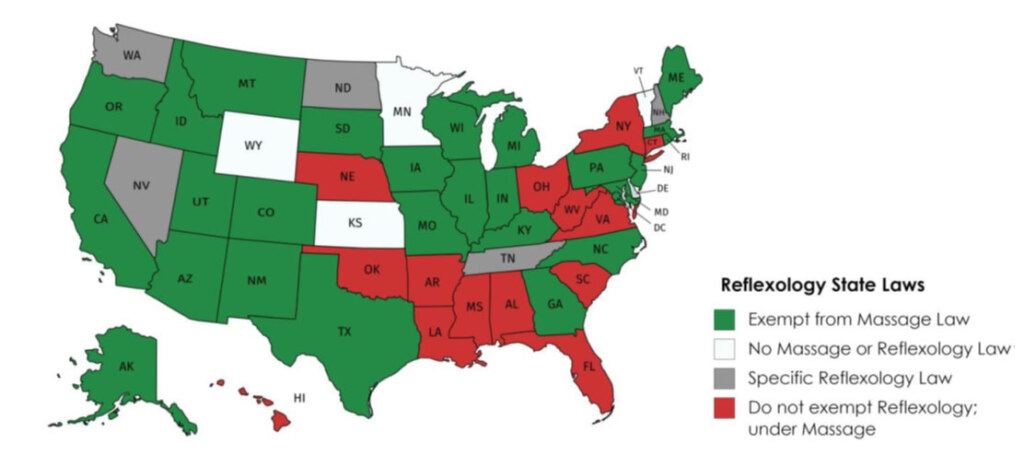Legislative Testimony for LB211: Adopt the Reflexologist Registration Act
Good afternoon, Chairman Arch and members of the HHS Committee. My name is Nicole Fox, and I am the Director of Government Relations for the Platte Institute. I would like to thank Senator Murman for introducing this bill. I am here today to testify in support.
The state of Nebraska has the most burdensome occupational licensing laws in the country to become a massage therapist. If all you want to do is practice reflexology in this state, you must adhere to the occupational licensing laws that govern massage therapists. That means attending 1,000 hours of massage training at a cost of up to nearly $20,000. The massage therapy curriculum teaches very little, if any, reflexology.
A much less burdensome path exists to practice reflexology. Two well-known national private certification courses exist at only 200-300 hours of training and a fraction of the cost. 100% of the curriculum pertains to reflexology.
Reflexology and massage therapy are two different practices. Reflexologists limit their services to the application of specific pressure, using their hands, thumbs, and fingers, to soft tissue exclusively in the hands, feet, and outer ears of the client. Clients do not disrobe.
People have left this state due to Nebraska’s burdensome law. There are Nebraskans who have taken the private certification coursework spelled out in this bill. Some provide services to a few select clients in secret, but they are fearful of receiving a cease-and-desist order or being charged with a felony. LB211 would allow them to openly practice, grow their client base into a small business, and ultimately provide for themselves and their families.
As far as how Nebraska compares nationally, we are in the minority. Reflexology is exempt from massage laws in 32 states and the District of Columbia. In addition to that, 4 states have no massage law, nor is reflexology regulated in those states in any way.

Of the remaining 14 states, 5 have reflexology specific laws. Of those, LB211 is like the laws in Tennessee and Washington.
Regionally, our neighbors, Colorado, Iowa, Missouri, and South Dakota exempt reflexology from massage law. Kansas and Wyoming do not have massage laws. Both nationally and regionally, Nebraska is not competitive.
Reflexology has been put through the 407 credentialing review process, and the Platte Institute authored the 407 proposal.
When we completed the application, it was decided to request approval for licensure. We decided that this would be the best way to determine whether reflexologists should be licensed at all. Ultimately the Medical Director recommended against licensing reflexologists in Nebraska. In his 2018 report he stated,
“The creation of a licensed Reflexology profession in Nebraska is not necessary. I see no reason why Reflexology should not become an independent profession separate from Massage Therapy. Most states recognize Reflexology as a separate and distinct profession…. I see no reason why Nebraska needs to be different…. Given that Reflexology is arguably safely unregulated in most states, it is difficult to justify Nebraska holding possibly the most arduous Reflexology requirements in the United States…. It is difficult to conceive of any treatment or approach more medically risk free than Reflexology.”
This bill has evolved since its previous introduction. Last session’s bill reflected the 407 review findings, but due to concerns raised and suggestions made during floor debate, it was decided that private certification with registration was the best option.
I have discussed the burdens that current law imposes on would-be entrepreneurs in terms of the training required because, as a committee, you need that information.
Let me tell you what is also important. People are hurting right now. The COVID pandemic has led to the closure of many Nebraska small businesses. We need to be doing all we can to get people working. LB211 would do just that. LB211 is a jobs bill. LB211 says we want you to live and work in Nebraska. The ability to pursue the occupation of one’s choosing is one of the greatest gifts this Legislature could give Nebraskans.
In 2016 and 2018 this committee, and ultimately the Nebraska Legislature, advanced and passed 2 bills very much like LB211—one exempting hair braiders from cosmetology licensing, and one exempting equine, feline, and canine massage from massage licensing. You have an opportunity to score a third similar win for Nebraska’s workers. I ask that you advance LB211 out of committee.